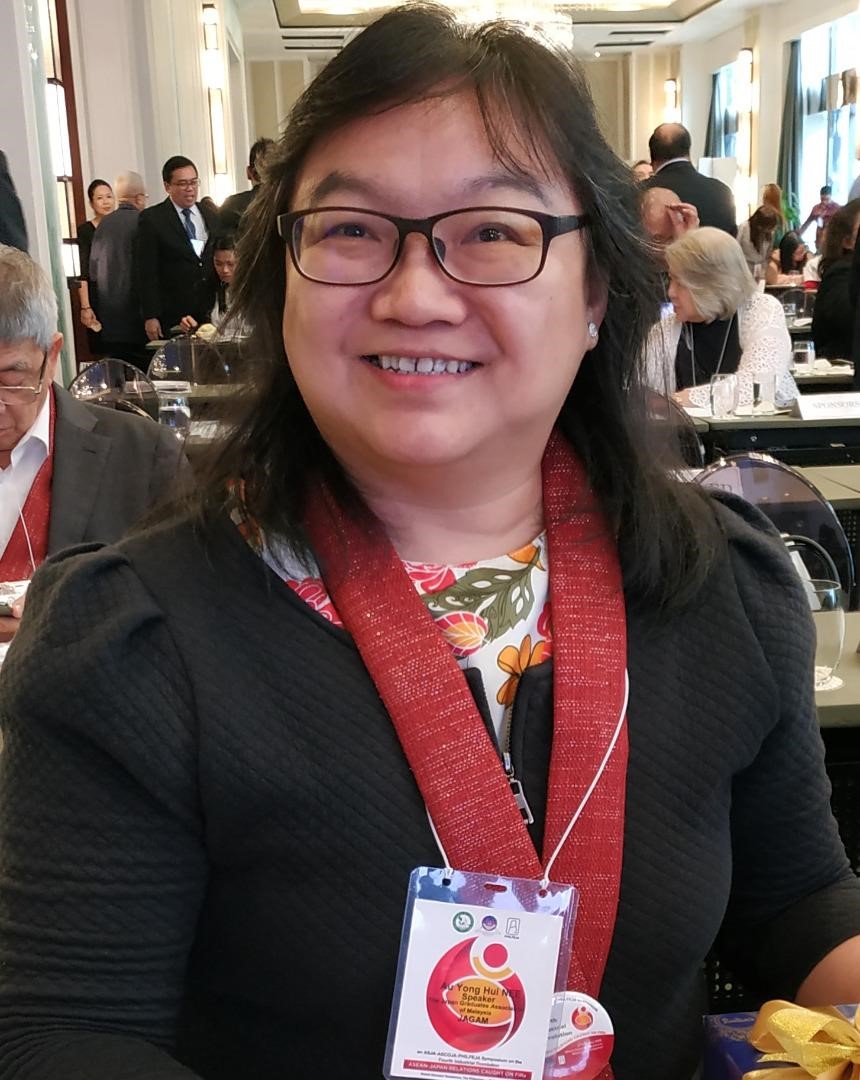

Prof. Arumugam Dhanalakshmi
Wenzhou University, China
Research Area: Values, Business ethics, Customer Relationship Management, E-commerce and internet technology, Impact of E-commerce and IT on the Belt and Road Initiative and E-commerce and Virtual Agents.
Profile: Dr. Arumugam Dhanalakshmi research experience is inter-disciplinary, worked on the following areas: Values system, classification of personality by using artificial neural network, business ethics and corporate governance. Post-doctoral research at Daito Bunka University, Tokyo, Japan and the role of president at Centre for Rural Health and Social Education enabled me to gain research experience. Currently working on the "Role of E-commerce and Internet Technology in Belt and Road Initiatives" and another ongoing research is on Virtual Agents and E-commerce.
Title: Application of Artificial Intelligence in the Internet Driven Economy
Abstract: Artificial intelligence (AI) is a wide-ranging tool that enables people to rethink how to integrate information, analyze data, and use the resulting insights to make quality decision in every aspect of life. The world is seeing exponential advances in artificial intelligence and it is rapidly becoming more adroit in performing complicated tasks due to drastic changes which triggered the wide use of internet, data processing speed, storage capability, transfer rates and etc. Experts say that AI will impact jobs, professions and industries too. AI is transforming the way in which almost all global challenges are addressed. AI programs are capable of providing inputs to every sector of any given economy including real-time monitoring of crop risks to farmers, allowing them to produce more food with lower environmental impact. AI programs are now helping seismologists detect earthquakes they might otherwise miss. Across a wide range of medical procedures, AI-driven robots are assisting surgeons, and providing more precision and better outcomes. Algorithms are improving fraud detection, health diagnoses, voice voice recognition systems, as well as advertisement targeting in e-commerce and political campaigns. The “moonshots” in AI could lessen the cost of important interventions, prevent disasters, and improve the health and well-being of millions of people and our planet. There are new applications in finance, defense, health care, criminal justice, education and other key industries. These are just a few examples to understand the applications of AI and internet technology in the modern economies. This paper discusses the role of AI and its novel applications in finance, national security, health care, criminal justice, transportation, and smart cities, and address issues such as data access problems, algorithmic bias, AI ethics and transparency, and legal liability for AI decisions and also discusses how internet is pawing way to implement technological advancements to benefit the society in general and stakeholders in particular.

Assoc. Prof. Minyue Jin
Chongqing University, China
Research Area: Supply chain management, sustainable operations, marketing‐manufacturing interface
Profile: Dr. Minyue Jin received her Ph.D. from University of Science and Technology of China, and had been a visiting postdoc at University of California, San Diego. In 2018, she joined Chongqing University under the “One-hundred Talents Program”. Her research interests include sustainable operations and supply chain management, consumer behavior and marketing strategies. Jin has been published in numerous journals, including Manufacturing & Service Operations Management (UTD 24), European Journal of Operational Research, Omega, International Journal of Production Research, and International Journal of Production Economics.
Title: Implications of green optimism upon sustainable supply chain management
Abstract: In recent years, managers have increasingly integrated sustainability into their business models. However, they might overestimate the premium that average consumers are willing to pay for the environment. In this paper, we formulate a game-theoretical model that illustrates the impacts of green optimism which refers to managers’ optimistic bias about consumer environmental awareness. We consider a sustainable supply chain in which one manufacturer invests in green product development and sells the green prod- uct through one retailer. Each firm within the supply chain is operated by one manager who is either realistic or optimistic. Contrary to conventional wisdom, we find that managers’ optimistic bias might discourage investment in green product development. We also find that green optimism is always detri- mental to the upstream manufacturer, but might be beneficial to the downstream retailer. Surprisingly, under certain conditions, green optimism can be detrimental to all stakeholders, i.e., firms in the sup- ply chain, consumers, and the environment. This study suggests an interesting link between supply chain management and human resource management; that is, within a sustainable supply chain those man- agers who are optimistic about the future of green business might be an obstacle to the success of green business.

Assoc. Prof. Au Yong Hui Nee
Universiti Tunku Abdul Rahman, Malaysia
Research Area: Economics/Financial/Risk Management, Environment Safety and Health, Supply Chain Logistics, Technology Management
Profile: Dr. Au Yong Hui Nee holds a PhD degree in Technology Management from University of Science Malaysia, a graduate of MA Economics from University of Tsukuba in Japan and Bachelor of Science (Honours) Resource Economics from UPM (Universiti Pertanian Malaysia). She is an Associate Professor and currently the Dean of the Faculty of Business & Finance at Universiti Tunku Abdul Rahman, one of the largest faculties in the country. Dr Au Yong is a MEXT (Monbukagakusho) scholar. She was honoured with the Tun Razak Youth Leadership Award. She received Best Paper Awards and Best Oral Presentation Award in South Korea and in the United Kingdom. She has published papers in international refereed journals and proceedings, of which more than thirty journal papers were published in journals indexed to Thomson Reuters ISI-Web of Science and Scopus. She has been involved in several consulting and research projects. She has provided consultation services to oversesas and domestic organisations: Japan Overseas Vocational Training Association, and the Federation of Malaysia Chinese Guilds Association. Since 2015, she has won a number of grants totally approximately RM600,000: Southeast Asia, Southeast and South Asia and Taiwan Universities (SATU) Joint Research Scheme, Fundamental Research Grant Scheme (FRGS) from Ministry of Education, Prime Minister's Department and UTAR Research Fund. Prior to her academic career, Dr. Au Yong held management positions in technology and the public sector. She held managerial positions at Fortune 500 and Forbes 2000 companies and a state agency. She has close to two decades of information technology and operations management experience in international trade. She was the founding manager of data analytics department and management system department of the technology companies.
Title: Potentials Of The Innovation–economic Growth Nexus To A Digital Future
Abstract: In the course of digital transformation, the digitalization is on the agenda in firms. Malaysia has aimed to developed into a high-income nation of by 2020. However, the non-achievement of the target suggests that Malaysia is in a prolonged middle-income trap. The study provides an overview of the implementation of the digital economy in Malaysia as well as its challenges of its implementation. The purpose of this study is an analysis of digital transformation factors that shape the economic development of the digital economy. Based on the analysis of the interviews with experienced academics and industry practitioners, the factors for development of digital economy were identified, which can further become the foundation for an improved digital economy development model. In addition, empirical results revealed that Information Communication Technology export and Research and Development have significant positive impact on gross domestic product. It is understood that the swift digitalization undoubtedly contributes to improved economic performance as well as the environmental and societal implications. There are barriers to digital economy, including skills needed and availability of quality internet infrastructures. The study suggests that ICT infrastructure should be upgraded and expanded in schools, health industry and businesses. The culture of conducting more longitudinal research in science and technology should be adopted precisely.

Assoc. Prof. Desislava Stoilova
South-West University“Neofit Rilski”, Bulgaria
Research Area: Public finance, local finance, financial management, economic growth
Profile: Desislava Stoilova joined the Faculty of Economics at the Southwest University, Bulgaria as an assistant professor in Finance, immediately after her graduation in 1999. In 2006 she obtained a PhD with a thesis in the field of financial decentralization. In 2011 Desislava Stoilova was promoted to the rank of associate professor. Now she teaches the disciplines “Corporate finance” and “Local finance” and conducts scientific research projects. She is author of more than 60 publications in the areas of public finance, financial management, economic development and growth.
Title: Analysis of the Financial Management of Municipal Enterprises in Southwest Bulgaria with Z-Score Model
Abstract: Enterprises are considered the backbone of the economy. Municipal enterprises are businesses owned by local authorities that provide a variety of services and generate revenues for local communities. In theory, municipal enterprises are focused on economic activities, which fall into three main categories: (i) socially profitable, but not privately remunerative, (ii) privately remunerative, but not capable of private execution, and (iii) natural monopolies. Consequently, their primary goal should be to improve social welfare. In practice, municipal enterprises can also pursue economic efficiency by producing goods and providing services on a remunerative basis, thus ensuring revenues to the local budgets. The purpose of this paper is to analyze the financial performance of nine municipal enterprises during the period 2006-2020 using Z-Score model. The results indicate that municipal enterprises can achieve profitability while providing a wide range of services to the local community.
We warmly invite you to participate in ECIT 2022 and discuss with keynote speakers.